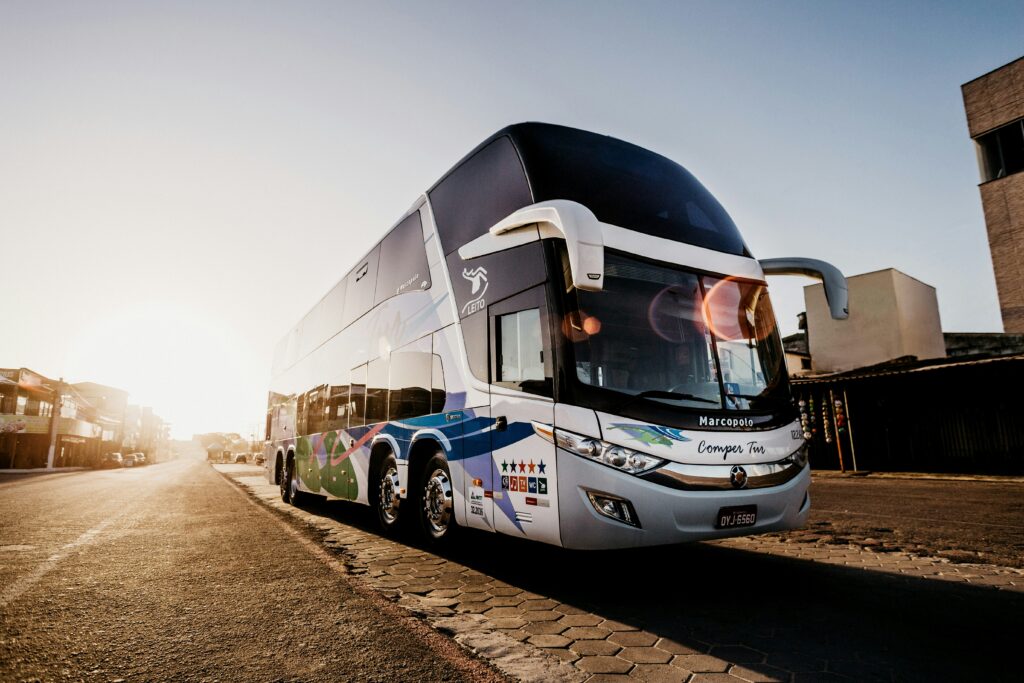The Nigerian interstate road transport industry plays a crucial role in connecting cities and people across the country, yet it seems stuck in time. While technological advancements are rapidly reshaping industries like banking, telecommunications, and even e-commerce, transport companies have largely failed to embrace innovations that could enhance customer experience and operational efficiency. Why is this the case? Let’s dive into three main reasons.

1. Lack of Visionary Leadership
One of the most glaring reasons why innovation is passing by the Nigerian intercity transport sector is the absence of visionary leadership within most companies. A visionary leader is someone who not only reacts to the present but also anticipates future trends and prepares for them. Unfortunately, many companies in the sector are led by individuals who prioritize short-term profits over long-term development.
A notable exception to this rule is GIGM, a company that has embraced modern technology and digital solutions. GIGM’s investment in an intuitive booking platform, real-time tracking, and customer-centric mobile app has set them apart from their competitors. They’ve proven that having leadership that sees beyond the next bus trip makes all the difference. However, most other transport companies remain reluctant to follow this path, missing out on opportunities to modernize and differentiate themselves in the marketplace.
2. Lack of Infrastructure
Innovation cannot thrive without the necessary infrastructure to support it. The deplorable state of roads across many parts of Nigeria significantly impacts not only the safety but also the efficiency of the transport industry. Vehicles break down more often, delays are rampant, and customers are left frustrated. Poor road infrastructure means companies are forced to focus on survival rather than innovation.
Moreover, standard motor parks in many Nigerian cities are poorly maintained and lack basic amenities, leaving little room for the kind of modern, tech-driven logistics operations that are seen in more developed countries. Without a reliable and functional physical infrastructure, the foundation needed for transformative technological advancements in the sector simply doesn’t exist.
3. Lack of Regulation and Accountability
The absence of strict regulatory frameworks within the industry also plays a significant role in stagnating innovation. A well-regulated industry provides clear rules that push companies to meet certain standards, ensuring safety, reliability, and customer satisfaction. Unfortunately, the interstate transport industry in Nigeria operates with minimal oversight, allowing companies to cut corners, compromise on service quality, and operate without fear of repercussions.
Without regulation, there is no incentive to innovate. A regulated environment would push companies to think beyond basic operations and offer better customer experiences—introducing features such as reliable scheduling, safety protocols, online booking systems, and more. However, as long as there are no standards to adhere to, companies can continue to operate with subpar services and outdated methods, knowing that customers don’t have better alternatives.
The Path Forward
The good news is that there is ample opportunity for Nigerian transport companies to transform. The rise of companies like GIGM shows that the market is ready for a more modern approach. But to achieve this transformation across the board, a fundamental shift in mindset and priorities is essential. This change will require:
- Investment in Infrastructure: Companies must advocate for better roads and improved motor park facilities. Even though these are national challenges, transport companies can collaborate with government bodies and private investors to drive infrastructure improvements.
- Visionary Leadership: Leaders need to prioritize long-term growth over short-term gains, embracing digital solutions that improve customer experience, such as mobile ticketing, digital payment options, and real-time tracking.
- Regulatory Advocacy: Stakeholders in the industry should push for regulatory reforms that establish clear standards for service delivery, safety, and accountability. Regulations can help ensure that companies invest in technology that benefits both customers and operations.
At intercity, we believe that the future of Nigeria’s interstate transport industry lies in innovation. It’s not only about moving passengers from one city to another but also about making the journey safer, more comfortable, and efficient. By creating an ecosystem that prioritizes customer needs and leverages modern technology, we can align with the evolving expectations of travelers and set a new standard for transport services in Nigeria.
For the industry to thrive in the future, a collective effort to embrace technology, improve infrastructure, and establish effective regulations will be critical. It’s time for the Nigerian transport sector to leap into the digital age and meet the growing demands of its customers.

